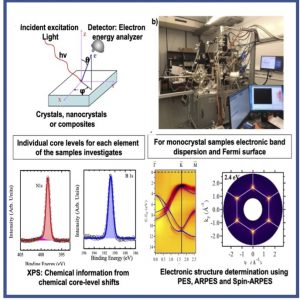
NIRVANA
PROJECT TITLE: METAL HALIDE PEROVSKITES: NEW STRUCTURES FOR NEW CHALLENGES
PRINCIPAL INVESTIGATORS:
Pablo Pérez Boix, Maria C. Asensio and Victor Sans
INSTITUTIONS ASSOCIATED TO THE PROJECT:
Materials Science Institute (ICMUV) of the University of Valencia, the Materials Science Institute of Madrid (ICMM of the CSIC) and the Advanced Materials Institute (INAM) of the Jaume I University of Castellón (UJI).
Budeget of the funded Project: TOTAL: 369.050,00€
ICMUV: 193.600,00€; ICMM: 84.700,00€; UJI: 90.750,00 € TOTAL: 90.750,00 €
ABSTRACT: As it is well-known, metal halide perovskites (mhPVK) materials offer excellent light absorption, charge-carrier mobilities, and lifetimes, resulting in highly efficient devices with opportunities to realize a low-cost and industry-scalable technology. However, to hold a transformational deployment in terawatt-scale solar implementations and a broader class of electronic and optical applications, perovskite- based technology should overcome barriers related to chemical and electronic stability in environmental conditions.
In this project, a selected collection of mhPVKs will be precisely assessed and tested by a compelling set of state-of-the-art characterization methods, combining traditional and non-conventional characterization techniques. This robust approach will be enhanced by optimized methods of synthesis and monitoring the performance of dispositive and devices in operando fabricated during the project. Besides, this complete experimental approach is closely integrated with practical artificial intelligence (AI) algorithms based on machine learning and deep learning techniques. They will give rise to a robust AI framework able to replace the traditional and time-consuming trial-and-error research method used today to improve the performance of new generation mhPVK materials. The innovative cross-disciplinary approach proposed based on optimized synthesis methods, experimental, cutting-edge characterization techniques, and AI developments will pave the way to find disruptive materials and breakthrough solutions to critical bottleneck problems closely related to the mhPVK applications.

